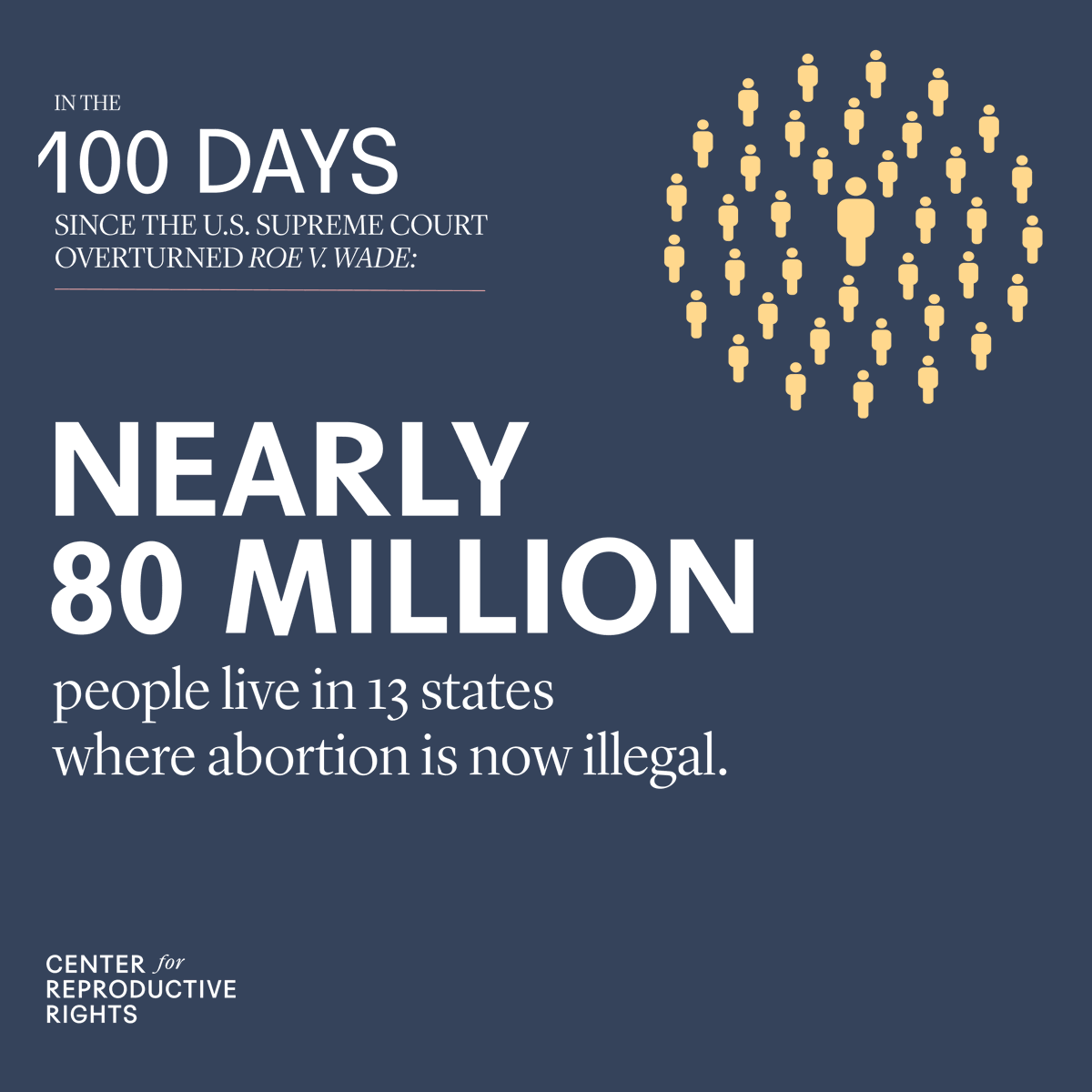
Sunday marked 100 days since the U.S. Supreme Court overturned Roe v. Wade, a devastating decision that has left millions struggling to access essential abortion care.
We’ve broken down the repercussions of this decision over the last 100 days, by the numbers. 🧵⬇️
We’ve broken down the repercussions of this decision over the last 100 days, by the numbers. 🧵⬇️

People across the U.S. seeking abortions are being forced to cross state lines, traveling hundreds of miles to access essential care.
Consequently, clinics in states where abortion is legal have become inundated with out-of-state patients.
Consequently, clinics in states where abortion is legal have become inundated with out-of-state patients.

We continue to #ActForAbortionAccess in support of #WHPA and the EACH Act. These two bills are critical to ensure that people can get the health care they need and MUST be passed by Congress. 📣 

The decision to overturn #RoevWade stands in stark contrast to decades of international progress on abortion rights and has left the United States out of step with the rest of the world. 

Everyone should have the freedom to control their own lives and futures, today, tomorrow, and forever.
See how state abortion bans are causing widespread harm, chaos, and confusion across America.
#AbortionIsEssential
reproductiverights.org/100-days-since…
See how state abortion bans are causing widespread harm, chaos, and confusion across America.
#AbortionIsEssential
reproductiverights.org/100-days-since…
The dire consequences of the decision to overturn Roe v. Wade are being seen across the country—and we're fighting back.
For more information and real-time updates on the laws, constitutions, and court decisions on abortion, view our After Roe Fell Map: reproductiverights.org/maps/abortion-…
For more information and real-time updates on the laws, constitutions, and court decisions on abortion, view our After Roe Fell Map: reproductiverights.org/maps/abortion-…
• • •
Missing some Tweet in this thread? You can try to
force a refresh





